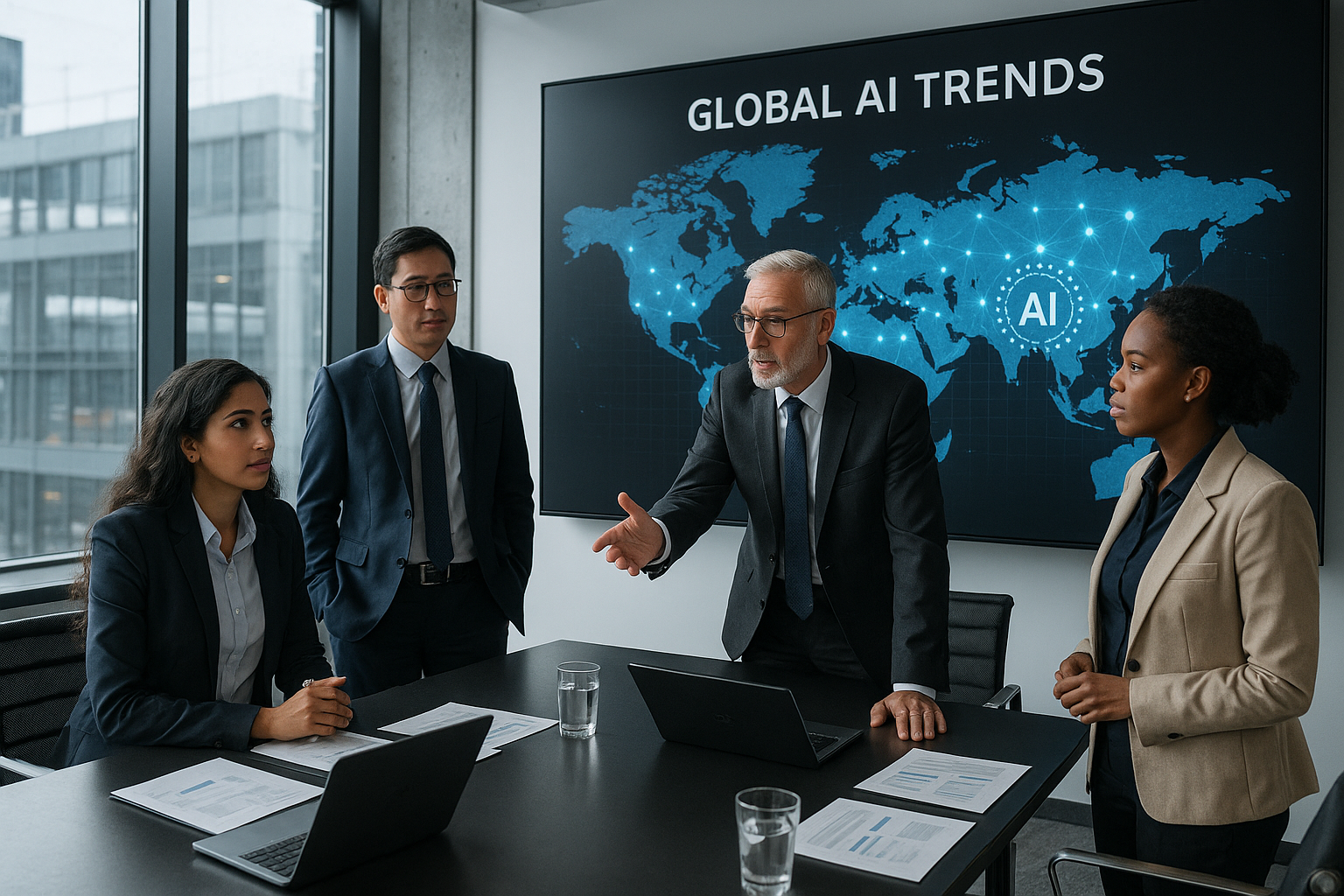Global AI Trends Transforming Economic Powerhouses Today
If you're eager to explore how artificial intelligence is reshaping the world's economic giants and want to discover actionable insights that can propel your business forward, browse options and visit websites to stay ahead in this dynamic landscape.

The Rise of AI in Global Economies
Artificial Intelligence (AI) is no longer a futuristic concept; it is a present-day reality transforming economic powerhouses across the globe. As AI technologies advance, they are creating unprecedented opportunities for growth and efficiency, helping businesses and nations alike to enhance productivity and remain competitive. From automating routine tasks to providing sophisticated data analysis, AI is a catalyst for change in industries ranging from manufacturing to finance.
AI's Impact on Economic Growth
AI is significantly contributing to economic growth by increasing productivity and efficiency. According to a report by McKinsey Global Institute, AI could potentially deliver an additional economic output of around $13 trillion by 2030, boosting global GDP by about 1.2% annually1. Countries that are early adopters of AI technologies are poised to gain a competitive advantage, as AI-driven innovations streamline operations and reduce costs.
Transforming Industries
AI is revolutionizing various sectors, each in unique ways:
1. **Manufacturing**: AI-powered robotics and automation are enhancing production capabilities, reducing human error, and increasing safety. Predictive maintenance using AI analytics minimizes downtime and extends machinery lifespan2.
2. **Healthcare**: AI is improving patient outcomes through personalized medicine, predictive analytics, and advanced diagnostic tools. AI algorithms analyze vast datasets to identify patterns that can lead to early disease detection and more effective treatments3.
3. **Finance**: AI is transforming financial services by enhancing fraud detection, automating trading, and improving customer service through chatbots and virtual assistants4.
AI and Employment
While AI is automating many tasks, it is also creating new job opportunities. The demand for AI specialists, data scientists, and machine learning engineers is on the rise. A report by Gartner suggests that AI will create 2.3 million jobs by 2020, surpassing the 1.8 million jobs it will eliminate5. Upskilling and reskilling the workforce is crucial to harness the full potential of AI and ensure that employees are equipped for new roles.
AI Investment and Policy
Governments and corporations are investing heavily in AI research and development. For instance, China aims to become the world leader in AI by 2030, with plans to invest billions in AI technologies6. Meanwhile, the European Union has proposed regulations to ensure ethical AI development, balancing innovation with privacy and security concerns7.
Opportunities for Businesses
Businesses have a plethora of opportunities to leverage AI for competitive advantage. By integrating AI into their operations, companies can enhance customer experiences, optimize supply chains, and drive innovation. Exploring AI solutions tailored to specific industry needs can yield significant benefits. Companies are encouraged to follow the options and explore specialized AI services to stay competitive and innovative.
In this rapidly evolving landscape, staying informed and adaptable is key. As AI continues to reshape economic powerhouses, the potential for growth and innovation is boundless. By embracing AI technologies, businesses and nations can unlock new levels of efficiency and prosperity, paving the way for a future where AI is integral to economic success.